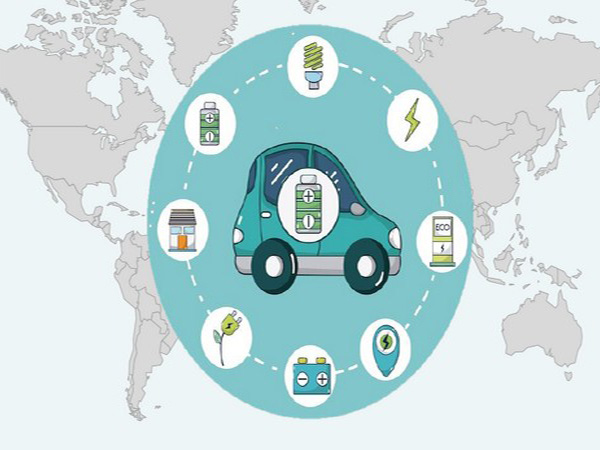The global electric vehicle (EV) market is on the rise, with projections showing impressive growth. According to an Axis Securities report, the market, valued at USD 255 billion in 2023, is expected to reach USD 2,108 billion by 2033. This growth is driven by increasing global demand for sustainable mobility solutions. India is expected to play a significant role in this EV revolution, with projections showing annual EV volumes of 10 million units by 2033, a substantial increase from the 1.7 million units recorded in FY24. This transformation will be supported by favorable government policies, the introduction of new products, declining costs, and technological advancements.
Key vehicle segments like three-wheelers (3W), two-wheelers (2W), electric buses, and passenger vehicles are expected to see significant EV adoption in India over the next decade. As infrastructure improves and more affordable models enter the market, the EV segment is poised for further growth. The government has allocated Rs 10,900 crore in subsidies over the next two years to promote the adoption of electric two-wheelers, three-wheelers, and buses. This scheme aims to support the sale of e-2Ws, e-3Ws, and e-buses, with incentives for each vehicle type until March 2025. Additionally, Rs 500 crore has been earmarked for e-trucks and e-ambulances, emphasizing the government’s commitment to modernizing emergency services.
To encourage the adoption of EVs, the Indian government has committed Rs 2,000 crore to establish electric vehicle public charging stations nationwide. This initiative will support the installation of fast chargers for electric four-wheelers, chargers for electric buses, and chargers for electric two-wheelers and three-wheelers. In addition to charging infrastructure development, the government has introduced favorable tax rates for EVs to make them more affordable. Electric cars are taxed at just 5 per cent, compared to 28 per cent for hybrid vehicles and 49 per cent for internal combustion engine (ICE) vehicles. These measures aim to stimulate EV adoption and contribute to a more sustainable future for transportation in India.
In conclusion, the rise of the global electric vehicle market presents significant opportunities for India to lead the EV revolution and drive sustainable mobility solutions forward. With projections showing impressive market growth and increasing adoption rates among key vehicle segments, India is poised for significant EV market expansion over the next decade. Government initiatives such as subsidies, charging infrastructure development, and favorable tax rates for EVs are crucial in promoting EV adoption and fostering a more sustainable transportation ecosystem. As the EV market continues to evolve, India’s commitment to modernizing its transportation sector through electric vehicles will play a key role in shaping the future of mobility in the country.





















